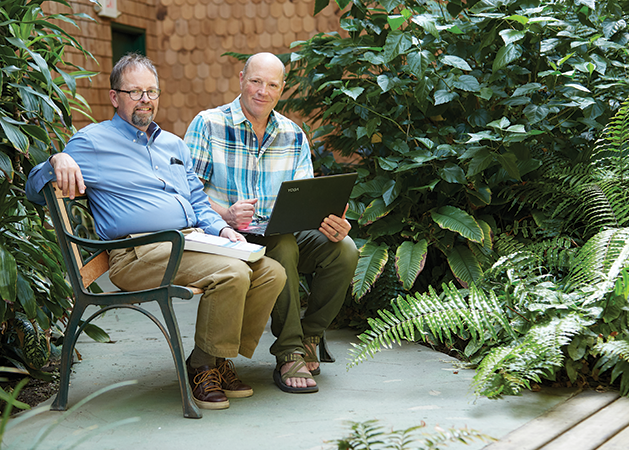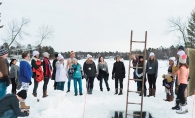
Addiction is a disease that doesn’t discriminate based on age, race, gender or income. It can happen to anyone including senior citizens.
Silver Sobriety is an outpatient treatment program for seniors founded by Stillwater residents Peter Oesterreich and Win Miller. It offers affordable, non-residential recovery services designed for older adults.
Oesterreich ran his own technology training business for 30 years until 2008 when he sold the business. A recovering alcoholic with 27 years of sobriety, he returned to school to earn a master’s degree in addiction studies.
In 2015 Oesterreich and Miller, who are neighbors, started discussing the need for a dedicated treatment program tailored to seniors. The approximate average client age at some urban treatment centers is 25, and opiates are often the drug of choice, Oesterreich points out. He says, “Many seniors just can’t relate to that, so a program like that is not a good fit for them.”
Oesterreich and Miller opened their program in early 2016. For the first year, neither took a salary. Rather than focusing on making a profit, their venture is based on “a passion to try to fill this gap; so seniors have some place to go,” Oesterreich says.
The standard price Silver Sobriety charges is $4,500 for six months of treatment and includes three group sessions per week and a weekly one-on-one meeting with a counselor. Many clients pay less based on their ability to pay. “Because we are a nonprofit, we have a very aggressive sliding fee schedule,” Oesterreich says.
For seniors, a major contributing factor to developing a dependence on alcohol or drugs is social isolation. “A lot of the people who come into our program are isolated,” Oesterreich says. “Their social circles have declined as spouses and friends have passed away, and their work circles .”
So, one of the important things Silver Sobriety gives clients is a place to connect with other people. The program uses strategies designed to address emotional issues such as loneliness, depression and grief.
“At its core, our program is based on the 12 steps of Alcoholics Anonymous and we believe that recovery is a lifelong process which should involve being part of some kind of recovery support group. It doesn’t have to be AA,” Oesterreich says.
Silver Sobriety has relapse prevention groups that meet several times a week. “We’re really trying to create a recovery community for seniors,” he says.
Stillwater resident Vickie B. had been attending a 12-step recovery group and saw a brochure for Silver Sobriety. At one point she struggled with a relapse into alcoholism after the deaths of her husband and a beloved pet. “I called [Silver Sobriety] to see if they had meetings there; Peter explained that it was a treatment center designed for older people,” she says. The idea appealed to Vickie, who is 67, because “we older people have our own set of problems related to loss and aging. I had been in groups with younger people and had nothing in common with them other than addiction. Kids don’t want to hear that your hip is hurting. And, I don’t have a ring in my nose.”
She became one of the first clients at Silver Sobriety and appreciates the program. “One of the best things about the program is that it’s long term—six months, compared to 28 days with typical inpatient treatment. So, the people in the group become a family. The program has saved a lot of older people,” she says.









